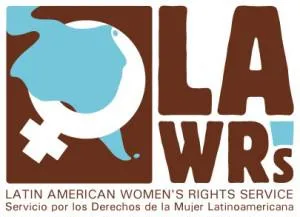Violence Against Women and Girls in transnational perspective in Rio de Janeiro and London
This interdisciplinary project was part of the ESRC UK-Brazil Collaborative Research Call under the auspices of the Newton Fund and the Urban Transformations programme (grant number:ES/N013247/1) (with Paul Heritage, QMUL).
The research was undertaken in partnership with the Palace Projects, Latin American Women's Rights Services, CASA Festival in London and with Redes da Mare and the Escola de Serviço Social, Federal University of Rio de Janeiro (UFRJ).

Aims
- To examine localised and transnational dynamics of violence against women and girls in Brazil and the UK, focusing on women and girls living in a favela community in Rio de Janeiro and on Brazilian migrants in London.
- To identify the nature, causes and consequences of violence against women and explores the linkages between cities of the Global South and Global North.
Methods
London: the research entailed a survey (with 175 Brazilian women), in-depth interviews (with 25 Brazilian women) and focus group research (five groups with women and one group with men), as well with 12 service providers. Geographically, the research was city-wide.
Rio de Janeiro: the research was conducted in Complexo da Maré, a low-income community in the north of the city, comprising nearly 4 km2 and including 16 slums. The research entailed a survey with 801 women, testimonial interviews with a further 20 women and seven focus groups (with 59 people in total), as well as 14 interviews with service providers.
Summary of Findings
London:
- 4/5 of women had experienced gender-based violence in their lifetime (82%)
- Nearly half (48%) of the women had experienced some form of gender-based violence in the UK
- Emotional/psychological violence was the most common type of violence experienced in London (48%), followed by physical violence (38%), and with 14% experiencing sexual violence
- However, 56% of women never reported an episode of violence in London, mainly because they thought nothing would be done about it, lack of information, and/or shame and fear of deportation due to insecure immigration status.
Rio de Janeiro:
- Awareness of violence against women and girls was more limited than in London
- Although the vast majority of those surveyed (76%) stated that violence against women and girls occurs in Maré, only 28% openly stated that they had suffered it. However, when asked about reporting such violence, 38% stated they had experienced it.
- Physical violence emerged as the most important (by 51% of women), followed by psychological/emotional violence (42%) and sexual abuse (7%).
- Intimate partners committed a third of gender-based violence with only 15% perpetrated by strangers; the remainder were by work colleagues and bosses and friends and family.
Impact
The research conducted in Rio de Janeiro was used to inform an audio-visual installation called SCAR by renowned Brazilian theatre maker, Bia Lessa. The theatre play, Efêmera by Gäel le Cornec was also written based on the women’s own words, as well as a film based on the play, photographs and an awareness-raising film.
Our Partners

Latin American Women's Rights Service
Principal Investigator
Affiliations
Project websites
Funding
Funding Body: Economic and Social Research Council (ESRC)
Amount: £534,000
Period: February 2016 - August 2019

